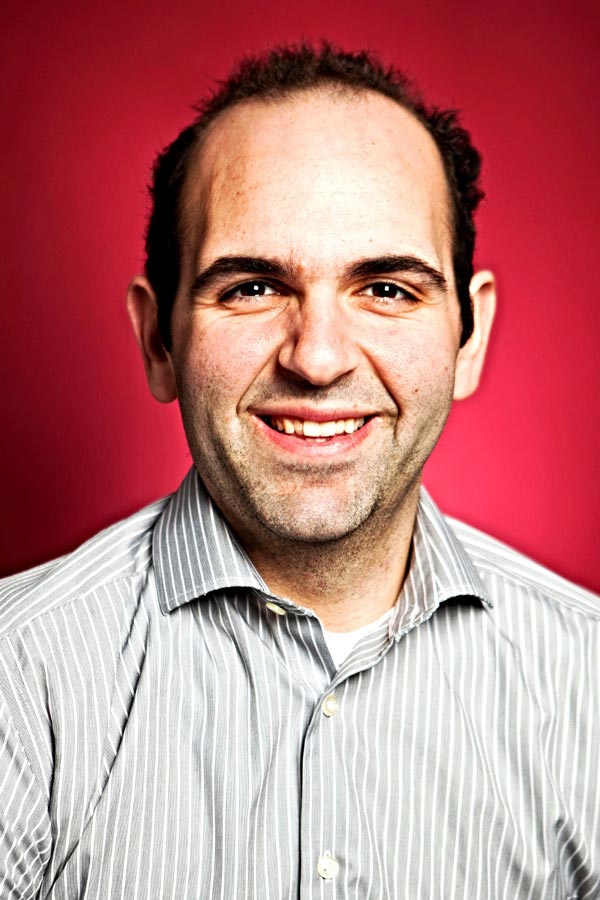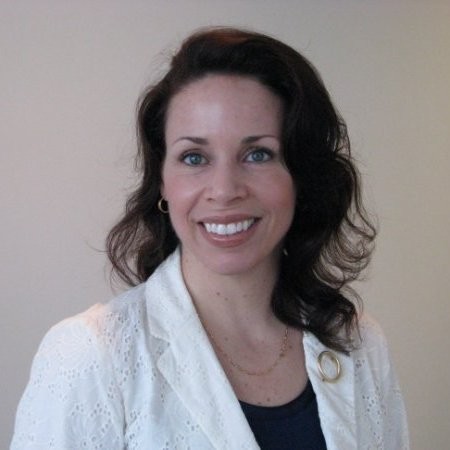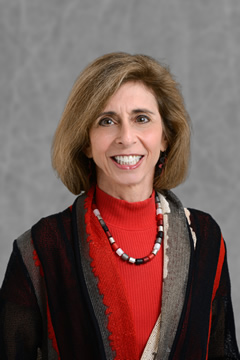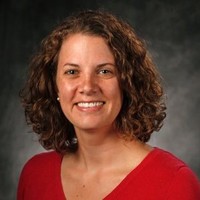
2018 SUPER Mid-Atlantic & South Regional Conference
October 1-3, 2018
Are you an Emerging Leader?
Emerging Leaders are UPCEA members who are mid-level professionals who aspire to more senior roles in professional, continuing, and/or online (PCO) higher education. And the upcoming UPCEA Mid-Atlantic Conference is ripe with opportunities to provide Emerging Leaders with avenues in which to develop professionally, engage actively in UPCEA, and to successfully navigate the event itself.
Beginning with a pre-conference, participants take part in a deep dive into leadership skill development. Within the conference, participants are invited to attend sessions tagged “Emerging Leaders,” which means that they are designed to offer skill development in areas critical for senior leadership like strategic planning, innovation, and leading teams. There will also be special opportunities allowing ample time to network with peers and senior leaders. At the end of the event a facilitated capstone session will provide an opportunity to reflect upon the experience, make plans to continue the journey, and to take the next steps to earn a badge that recognizes these achievements.
Registration:
Fee: $125
Just announced! The UPCEA Mid-Atlantic and UPECA South regions are providing scholarships to the Emerging Leaders program at the 2018 UPCEA Super Regional Conference. These scholarships will be available on a first-come, first-served basis. Click here to apply.
Advance registration is required.
The Emerging Leaders Regional Program includes the pre-conference (continental breakfast, instrument provided), the facilitated capstone session, dedicated content throughout the conference, facilitated networking, and opportunities to join a post-event cohort and to earn a formal credential (badge). Emerging Leaders Regional Program registration is in addition to full conference registration, which is required for the Emerging Leaders Regional Program Pre-Conference and Capstone participation.
In addition to the Pre-Conference and Capstone sessions, within the conference participants are invited to attend sessions tagged “Emerging Leaders,” ** on program and general sessions pages. These sessions are designed to offer skill development in areas critical for senior leadership, as well as provide special social opportunities allowing ample time to network with peers and senior leaders. All of these elements have been collected into a schedule below.
8:30 – 11:30 a.m. Pre-Conference: Identifying and Leveraging Strengths for Leadership Excellence in Professional, Continuing, and Online Higher Education (Glen Echo)
Participants of this pre-conference workshop will have an opportunity to explore their leadership strengths and ways of leveraging these strengths within the context of professional, continuing, and online higher education. Dr. Ralph Gigliotti, Director of Leadership Development and Research from the Rutgers University Center for Organizational Leadership, will lead the group in an interactive facilitation of the Clifton StrengthsFinder assessment, and participants will discuss ways of applying their unique strengths to address the current needs of their unit, department, or institution. The session will conclude with an overview of recommended strategies for enhancing these strengths as individuals consider future leadership roles within higher education.
Emerging Leaders Regional Pre-Conference Facilitator:
 Ralph A. Gigliotti, Ph.D., Rutgers University
Ralph A. Gigliotti, Ph.D., Rutgers UniversityDr. Gigliotti is Director of Leadership Development and Research in the Rutgers University Center Organizational Leadership, where he oversees a number of faculty and staff leadership development initiatives and leads several research projects related to leadership and communication in higher education. He also serves as a part-time lecturer in the Department of Communication and an associate faculty member in the Ph.D. Program in Higher Education at Rutgers. Ralph’s research interests explore the intersection of organizational communication, leadership, and crisis communication, particularly in the context of higher education. His research appears in numerous books and journals, including the Journal of Leadership and Organizational Studies, Journal of Applied Research in Higher Education, Journal of Leadership Education, and Atlantic Journal of Communication. Ralph is also the co-author of A Guide for Leaders in Higher Education: Core Concepts, Competencies, and Tools (Stylus Publishing, 2017) and Leadership: The Dynamics of Communication and Social Influence in Personal and Professional Settings (Kendall Hunt Publishing).
2:30 – 3:30 p.m. Concurrent Sessions 1
And the Super Heroes Are...You!
Salon A
Track: Program Planning and Implementation
Learn from a panel of veteran administrators in PCO education about how to make your unit more visible on campus, especially with top administrators of your university. Build upon your strengths (you are SUPER HEROES!) for needed supports and collaborations. Innovation and great ideas need to be shared with all stakeholders. Don't keep your great programs to yourself! You never know who can provide assistance and bring more value to the good work you do if you don't take the time to showcase and promote the programs and efforts of your team. Q & A will be included.
3:45 – 4:45 p.m. Concurrent Sessions 2
Become a Culture Superhero!
Salon B
Track: Business and Operations
How can all levels of staff recognize and harness the power of culture to move the unit forward? Does your unit intentionally link office culture to mission? How does your team respond to organizational change? In this presentation, two leaders of Continuing Education (CE) units will explore the unique aspects of our work that present challenges to healthy office culture and stifle forward momentum. The presenters will apply Tuckman’s (1965) stages of team development to highlight the interdependence of content, process, and feelings, and they will lead participants to recognize their superpower – creating and supporting positive culture! This session will include an interactive workshop designed to help you link your office culture to the mission of your unit or institution.
7:30 – 8:30 a.m. Breakfast with Business Meetings (Salon D)
Engage in a highly interactive session with a panel of senior leaders on where our dynamic field is headed. Alternative credentials, shifting demographics, and new models are already shaping how institutions serve students. This group of panelists will provide their unique perspectives on organizational and market forces that are emerging, how they are responding at their institutions, and how UPCEA members will lead us into the near-term future (2025!).
Nelson Baker, Dean, Professional Education
Georgia Institute of Technology
Sandi Pershing, Assistant Vice President Engagement
University of Utah
President, UPCEA
Joellen Shendy, Associate Vice Provost and Registrar
University of Maryland University College
Bob Hansen, CEO
UPCEA
10:30 – 11:30 a.m. Concurrent Sessions 3
Building Your Professional Profile
Salon C
Track: Business and Operations
Your everyday job can be part of a bigger story. Learn about building your professional profile and actively shaping your career from those who’ve been there before. Hear about the key inflection points on their career paths, how to identify your own, and key steps you can take today to create the career opportunities you want for yourself, your teams, and your organization.
1:30 – 2:30 p.m. Concurrent Sessions 4
Communicating Through Effective Feedback
Salon C
Track: Online Administration
Providing feedback can be time consuming, especially in a written format. Feedback provided can often be taken out of context or misinterpreted in the online environment. This session will help faculty members avoid being overwhelmed and fatigued in the feedback process. Effective strategies will be identified to avoid feedback pitfalls deescalating student complaints and conflict.
Strategic Look at Emerging Technologies
Salon C
Track: Online Administration
New and emerging technologies are changing the delivery modes and certifications of learning in our field. Blockchain, augmented reality, virtual reality and even more advanced technologies enabled by artificial intelligence and machine learning are on the horizon for the near term. This session will introduce the terms and technologies as well as applications in continuing and professional education. The focus will be strategic implementation and competition.
9:45 – 10:45 a.m. Concurrent Sessions 6
Transparency in Higher Education: Workforce Development and your Institution
Glen Echo
Track: Community and Economic Engagement
For decades, college degrees have been an important component to workforce development. With a national dialog focused on the value and importance of college degrees juxtaposed with non-degree credentials from alternative credential providers, transparency in higher education has never been more important. Credential engine, a non-profit organization focused on creating transparency in the credential marketplace, is working with institutions, industry groups, states, and national organizations to create collaborations and new opportunities in the workforce ecosystem. Join leaders in credentialing as they discuss the benefits of being involved in this important movement in workforce development.
11:30 AM-12:15 p.m. Capstone Session: Recapping the Program and Next Steps
Participants will be guided in this opportunity to reflect upon their experiences and invited to consider next steps, including opting-into a future cohort of peers, earning a credential (badge) recognizing this experience, and to learning about future volunteer leadership opportunities within UPCEA.
Emerging Leaders Regional Capstone Facilitators:
 Amy Claire Heitzman, Ph.D., UPCEA
Amy Claire Heitzman, Ph.D., UPCEADr. Heitzman is the Deputy Chief Executive Officer and Chief Learning Officer for UPCEA. With degrees in art history from the University of Michigan and the University of Chicago, Amy began her career in museum education, developing programs and training museum educators at various university art museums, as well as the Art Institute of Chicago and the Dallas Museum of Art. In 2002, after having served as Education Director for the Meadows Museum on the campus of Southern Methodist University, her interest in adult learners led her to the directorship of SMU’s Continuing Education unit. As Executive Director of Continuing and Professional Education, Amy directed a new strategic vision for the unit, effectively doubling the number of programs offered and students served, increasing the university’s capacity to more deeply engage with its community. While at SMU, Amy served in various leadership roles including board membership in the SMU Staff Association and the Hegi Family Career Center as well as an appointed member for the Presidential Council for Community Engagement and the Faculty and Staff Committee of the Second Century Capital Campaign. It was during her time at SMU that she earned graduate certificates in marketing and nonprofit leadership, as well as the M.Ed. Amy earned her doctorate in Higher Education Administration at The University of Texas at Austin in 2014, and her dissertation focused on female student veterans in higher education. Amy writes and presents on examinations of nontraditional learners, the experiences of student veterans—particularly those of female student veterans, as well as comparative studies of international higher education systems. Amy has been active with various professional organizations throughout her career, including the Executive Committee of the UPCEA Board of Directors; serving as a member of the InsideTrack National Advisory Board, the George W. Bush Institute’s Military Service Institute Education and Training Task Force, and the Higher Education Advisory Group of the Credential Engine; and serving as a reviewer for the Chief Learning Officer LearningElite program, the Student Veterans of America National Conference, and the Association for the Study of Higher Education Annual Conference.
 Janice Sitzes, North Carolina State University
Janice Sitzes, North Carolina State University
 Jessica Brinker, University of North Carolina, Chapel Hill
Jessica Brinker, University of North Carolina, Chapel Hill